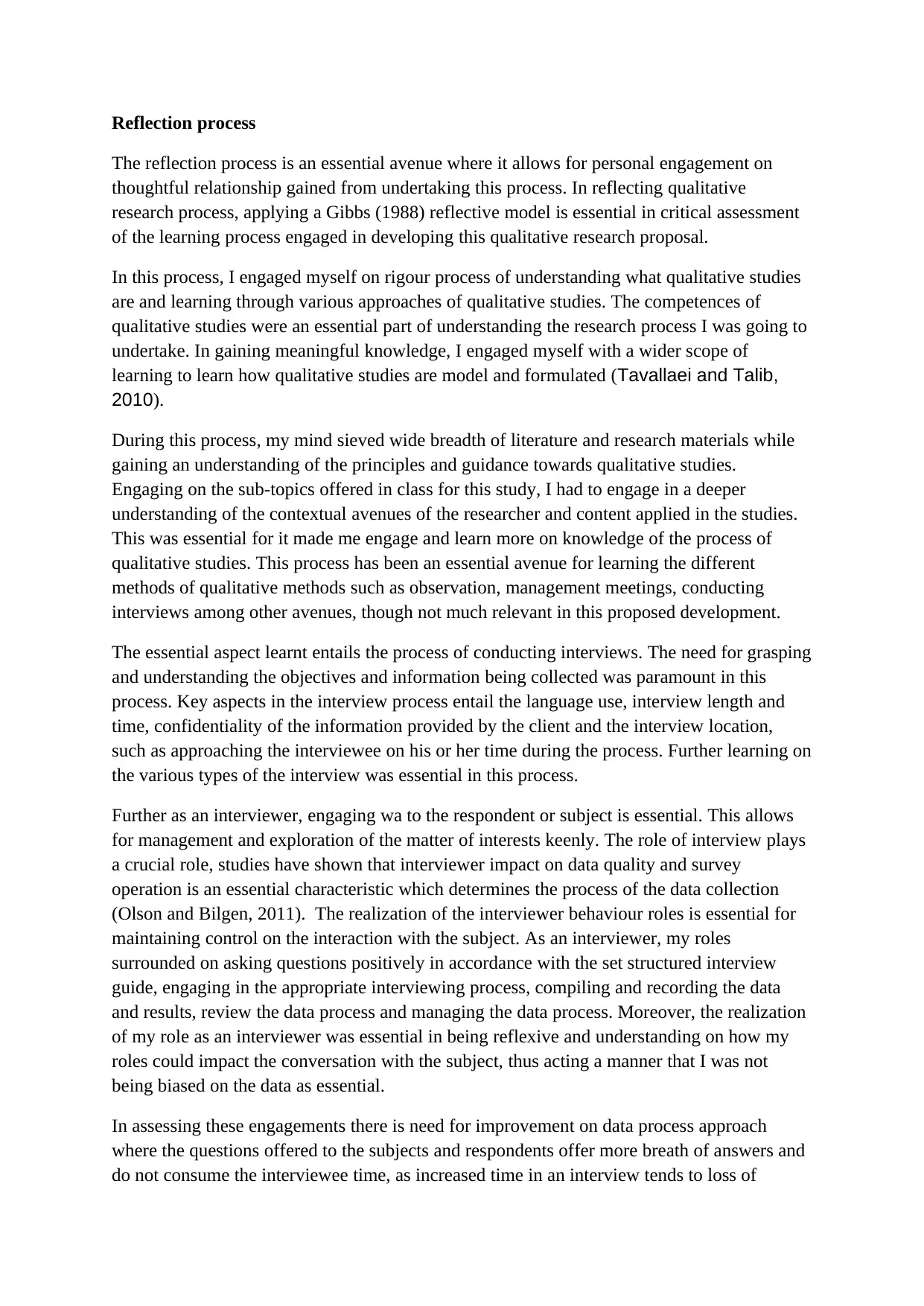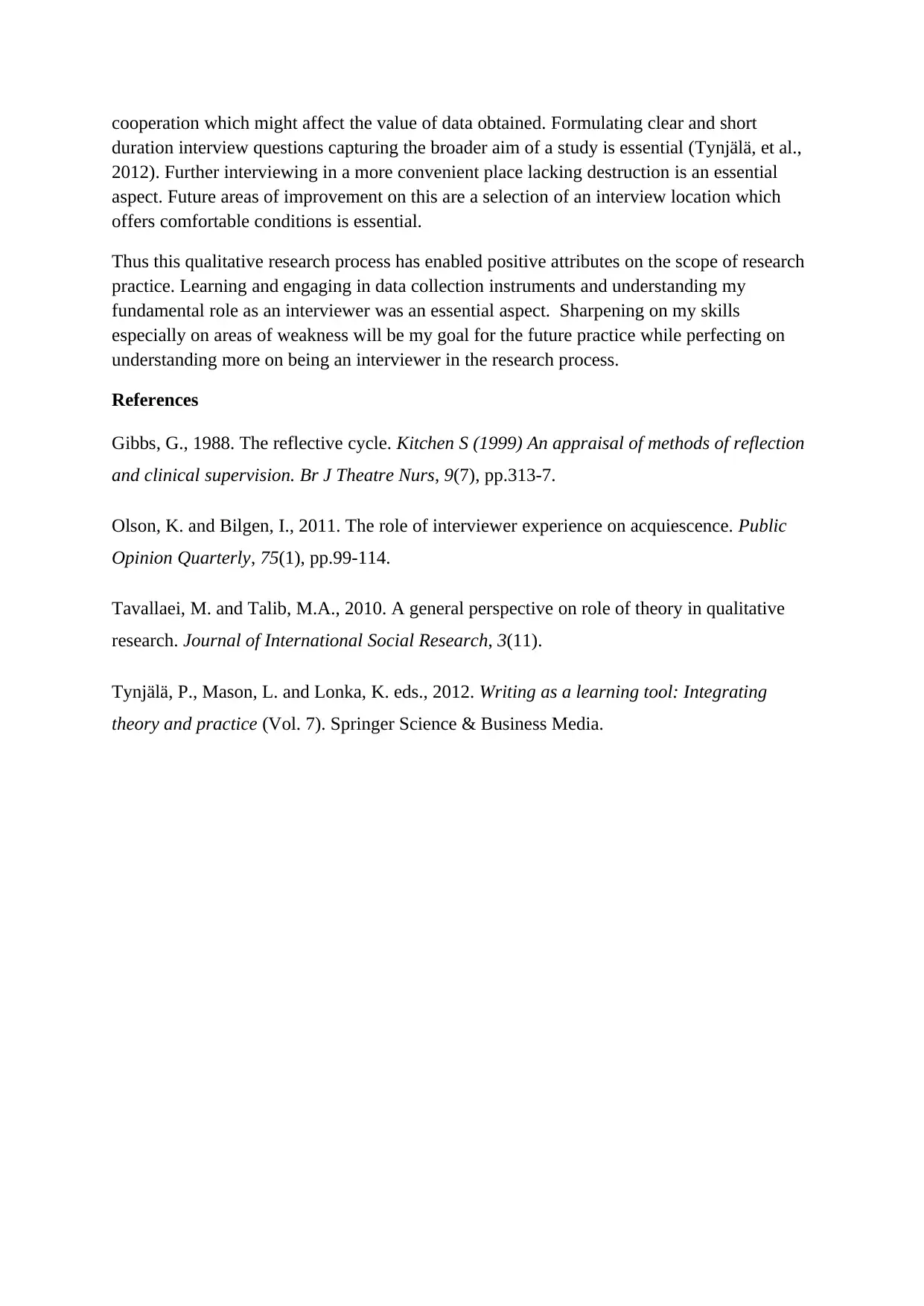HSH 715: Qualitative Health Research Process Reflection and Analysis
VerifiedAdded on 2022/07/28
|2
|831
|61
Homework Assignment
AI Summary
This assignment presents a student's reflection on the qualitative research process undertaken in the context of a health research course, HSH 715. The reflection utilizes the Gibbs reflective model to critically assess the learning experience, focusing on the development of a qualitative research proposal. The student details their engagement with qualitative research methodologies, including the study of different approaches and the importance of understanding the context of the research. Key aspects covered include the process of conducting interviews, the role of the interviewer, and ethical considerations such as confidentiality and the impact of interviewer behavior on data quality. The student identifies areas for improvement, such as refining interview questions and selecting appropriate interview locations, while also highlighting the positive attributes gained in the research practice. The reflection concludes with a focus on sharpening skills, particularly in areas of weakness, and perfecting the role of the interviewer for future research endeavors.
1 out of 2







![[object Object]](/_next/static/media/star-bottom.7253800d.svg)